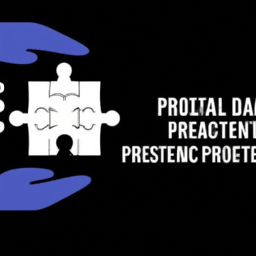Should We Have An External Consultant Review Our Business Continuity Plan?
If you’ve ever wondered about the effectiveness of your business continuity plan, you may have considered seeking the opinion of an external consultant. However, before taking any steps, it’s essential to weigh the benefits and potential drawbacks of involving an outsider in reviewing your plan. This article aims to provide you with an impartial analysis of whether engaging an external consultant is the right choice for evaluating and improving your business continuity strategy. By exploring the advantages and disadvantages, you’ll gain a clearer understanding of whether it’s prudent to invite an expert into your organization.
Benefits of an External Consultant
Fresh Perspective
One of the major benefits of bringing in an external consultant to review your business continuity plan is the fresh perspective they offer. As an outsider, the consultant is not bound by the preconceptions and biases that may exist within your organization. They can provide a new set of eyes to evaluate your plan and identify areas that may have been overlooked or can be improved upon. With their fresh perspective, they can bring innovative ideas and strategies that can enhance the effectiveness of your plan.
Expertise and Experience
External consultants are often experts in their field with years of experience working with various organizations. This expertise and experience can be invaluable when it comes to reviewing your business continuity plan. They have likely encountered similar challenges and situations in the past and can provide insights and best practices that can help your organization better prepare for any potential disruptions. Their expertise can also ensure that your plan meets industry standards and regulations.
Unbiased Evaluation
When reviewing your own business continuity plan, it can be challenging to remain completely unbiased. You and your team may be emotionally invested in the plan and may overlook certain weaknesses or gaps. An external consultant can provide an unbiased evaluation of your plan, objectively identifying areas that need improvement. They can provide constructive criticism and can also validate the strengths of your plan. Their unbiased evaluation can help you build a stronger and more robust business continuity plan.
Factors to Consider
Cost
One of the factors that need to be considered when deciding to bring in an external consultant is the cost involved. Hiring a consultant can be expensive, and it is essential to understand the financial implications before making a decision. However, it is important to remember that the cost of not having a comprehensive business continuity plan in place can be far greater in the event of a disruption. It is worth weighing the potential benefits and cost savings that a consultant can provide against the initial investment.
Time
Another factor to consider is the time required for the consultant’s review process. Depending on the scope and complexity of your plan, the review process can take anywhere from a few weeks to several months. It is vital to assess whether your organization can commit the necessary time and resources to the consultant’s review. Additionally, consider any time constraints that may be imposed by regulatory requirements or contractual obligations. It is crucial to align the consultant’s timeline with your organization’s needs.
Internal Resources
Before engaging an external consultant, it is essential to assess your organization’s internal resources. Do you have the necessary expertise and bandwidth within your team to thoroughly assess your business continuity plan? Are there team members available to collaborate with the consultant throughout the review process? Evaluating your internal resources can help determine if bringing in an external consultant is the right decision or if it is more efficient to handle the review process internally. Consider the costs and benefits of utilizing internal resources compared to engaging an external consultant.
Choosing the Right Consultant
Reputation and Track Record
When choosing an external consultant to review your business continuity plan, their reputation and track record should be given significant consideration. Look for consultants who have a proven track record of success in working with organizations similar to yours. Check for references and testimonials from past clients to ensure they have delivered high-quality work. A reputable consultant will have established credibility within the industry and will provide a level of assurance regarding the quality of their services.
Specialized Skills
Consider the specific skills and expertise that the consultant brings to the table. Do they have experience in your industry? Are they familiar with the unique challenges your organization may face? Specialized skills and knowledge can greatly enhance the value of the consultant’s review. Look for consultants who have relevant certifications or qualifications that demonstrate their expertise in business continuity planning. Selecting a consultant with the right skills can ensure that they can provide recommendations and solutions that are tailored to your organization’s needs.
Compatibility with Company Values
It is important to assess the compatibility of the consultant with your company’s values and culture. The consultant will be working closely with your team throughout the review process, and it is essential that they can integrate well with your organization. Consider their communication style, work ethic, and approach to problem-solving. Look for a consultant who shares similar values and understands the culture of your organization. A good fit between the consultant and your organization can foster collaboration and lead to a more successful review process.
Steps in the Review Process
Initial Meeting and Assessment
The first step in the review process is the initial meeting and assessment between your organization and the external consultant. This meeting is an opportunity for the consultant to gain a thorough understanding of your business continuity plan and your organization’s specific needs and objectives. It is also a chance for your team to ask questions and provide any necessary background information. During this stage, the consultant can start to formulate a plan for the review process based on the information they gather.
Review of Existing Plan
The consultant will then conduct a comprehensive review of your existing business continuity plan. They will analyze each component of the plan, such as risk assessments, crisis management procedures, and communication protocols. The consultant will evaluate the effectiveness and efficiency of the plan and identify any areas that may require improvement. They will assess the plan’s alignment with industry standards and regulations, ensuring that your organization is well-prepared for any potential disruptions.
Identification of Gaps and Weaknesses
Based on their analysis of your existing plan, the consultant will identify any gaps or weaknesses that may exist. They will thoroughly assess each aspect of the plan and determine where improvements can be made. This may involve identifying potential risks that were not previously considered or uncovering vulnerabilities in your current procedures. The consultant will provide a comprehensive report detailing their findings, highlighting areas that need immediate attention and areas that can be improved in the long term.
Recommendations and Solutions
Once the gaps and weaknesses have been identified, the consultant will provide recommendations and solutions to address them. They will work closely with your organization to develop a tailored plan that meets your specific needs and objectives. The recommendations may involve updating existing procedures, implementing new technologies or systems, or providing training to employees. The consultant will present their recommendations in a clear and actionable manner, ensuring that your organization can implement the necessary changes effectively.
Bringing in the Consultant
Considering Confidentiality and Security
When bringing in an external consultant, it is essential to consider issues of confidentiality and security. Your business continuity plan likely contains sensitive information about your organization’s operations, critical assets, and potential vulnerabilities. Ensure that the consultant has appropriate security measures in place to protect this information. Sign a non-disclosure agreement to safeguard your organization’s confidential data and ensure that the consultant understands the importance of maintaining confidentiality throughout the review process.
Fostering Collaboration and Communication
To ensure a successful review process, it is crucial to foster collaboration and communication between your organization and the consultant. Encourage open and honest dialogue between the consultant and your team members. Provide the consultant with access to key individuals within your organization who can provide valuable insights and information. Regular communication and progress updates are essential to keep the review process on track and ensure that all parties are working towards the same goals.
Benefits of External Review
Enhanced Reliability
By engaging an external consultant to review your business continuity plan, you can enhance the reliability of your plan. The consultant brings a fresh perspective and a wealth of experience and expertise that can improve the effectiveness of your plan. Their unbiased evaluation can identify weaknesses and gaps that may have been overlooked, ensuring that your plan is comprehensive and robust. By addressing these weaknesses, your organization can have greater confidence in the reliability of its business continuity capabilities.
Compliance with Standards and Regulations
An external consultant can help your organization ensure compliance with industry standards and regulations. They have a deep understanding of the requirements and can assess your plan’s alignment with these standards. By identifying any gaps or non-compliance, the consultant can help you bring your plan up to par. This ensures that your organization is well-prepared to meet legal and regulatory obligations in the event of a disruption. Compliance with standards and regulations can also demonstrate your organization’s commitment to upholding best practices and maintaining a strong reputation.
Improved Business Continuity Capabilities
Bringing in an external consultant can significantly improve your organization’s business continuity capabilities. The consultant’s expertise and experience allow them to identify areas for improvement and provide recommendations that enhance the effectiveness of your plan. By implementing these recommendations, you can strengthen your organization’s ability to respond to and recover from disruptions. This, in turn, can lead to improved operational resilience, reduced downtime, and minimized financial losses. Investing in external review can ultimately provide a competitive advantage for your organization.
Challenges and Considerations
Resistance to Change
One of the challenges that organizations may face when bringing in an external consultant is resistance to change. Employees may be hesitant to adopt new procedures or technologies suggested by the consultant, especially if they have been with the organization for a long time. It is important to address this resistance to change by clearly communicating the reasons behind the consultant’s recommendations and emphasizing the benefits that these changes can bring. Involving employees in the review process and providing opportunities for training and upskilling can also help alleviate this resistance and foster a sense of ownership in the new plan.
Internal Politics
Internal politics can also present challenges when engaging an external consultant. Different departments or individuals within your organization may have conflicting agendas or priorities, and this can impact the review process. It is crucial to manage internal politics effectively by involving key stakeholders from various departments and ensuring that their concerns and perspectives are considered. Open and transparent communication can help mitigate potential conflicts and ensure that the consultant’s recommendations are aligned with the overall goals of your organization.
Integration with Existing Team
Integrating the external consultant with your existing team can be a consideration to address. There may be a potential clash of personalities or differences in working styles. To facilitate a smooth transition, encourage open communication and collaboration between the consultant and your team members. Create opportunities for the consultant to interact with different individuals and departments involved in the review process. By fostering a sense of teamwork and mutual respect, you can harness the strengths of both the consultant and your internal team to achieve the best possible outcome.
Managing the Review Process
Setting Clear Objectives and Expectations
To effectively manage the review process, it is essential to set clear objectives and expectations from the outset. Clearly communicate what you hope to achieve through the review and what specific outcomes you expect. Define the scope of the review and identify any specific areas or concerns that need to be addressed. By setting clear objectives and expectations, you can ensure that both your organization and the consultant are working towards the same goals and can measure the success of the review process.
Establishing Deadlines
Another critical factor in managing the review process is establishing realistic deadlines. Work with the consultant to develop a project timeline that includes key milestones and deliverables. Consider any regulatory or contractual requirements that may impact the timeline. Setting deadlines helps keep the review process on track and ensures that progress is being made towards implementing the consultant’s recommendations. Regularly monitor the progress and adjust the timeline as needed to accommodate unforeseen circumstances or changes in priorities.
Regular Progress Updates
Communication and regular progress updates are vital in managing the review process effectively. Schedule regular meetings with the consultant to discuss the findings, recommendations, and any challenges that may arise. Ensure that there is open and transparent communication between your organization and the consultant throughout the process. Regular progress updates allow for timely feedback and adjustments if necessary, ensuring that the review process stays on track and meets the desired outcomes.
Post-Review Actions and Follow-Up
Implementing Recommendations
Implementing the recommendations provided by the consultant is a crucial step in the post-review process. Develop an action plan that outlines the specific steps needed to address each recommendation. Assign responsibilities to individuals or departments within your organization to ensure accountability. Consider any resource or budgetary implications that may be associated with the implementation plan. Regularly monitor the progress of the implementation and provide support and resources as needed to ensure effective execution.
Training and Communication
To ensure the successful implementation of the consultant’s recommendations, it is essential to provide training and communication to your team. Training can help familiarize employees with new procedures, technologies, or systems that may have been introduced as part of the review process. Effective communication is also critical to ensure that everyone in your organization is aware of the changes and understands their roles and responsibilities. Regularly communicate the progress of the implementation plan and provide opportunities for feedback and clarification.
Monitoring and Evaluation
Once the recommendations have been implemented, it is important to monitor and evaluate their effectiveness. Establish key performance indicators (KPIs) that can be used to measure the success of the changes made. Regularly review the KPIs and assess whether the consultant’s recommendations have achieved the desired outcomes. If necessary, make adjustments or refinements to ensure continuous improvement. Monitoring and evaluation are ongoing processes that allow your organization to adapt and refine its business continuity capabilities based on changing circumstances and emerging risks.
Conclusion
Hiring an external consultant to review your business continuity plan can provide numerous benefits. Their fresh perspective, expertise, and unbiased evaluation can enhance the reliability and effectiveness of your plan. However, it is essential to consider factors such as cost, time, and internal resources before engaging a consultant. When choosing a consultant, reputation, specialization, and compatibility with your organization’s values are crucial considerations. Managing the review process involves clear objective setting, establishing deadlines, and regular progress updates. Post-review actions and follow-up include implementing recommendations, providing training, and monitoring the effectiveness of the changes made. In conclusion, an external consultant can play a vital role in strengthening your organization’s business continuity capabilities and ensuring its resilience in the face of disruptions.








